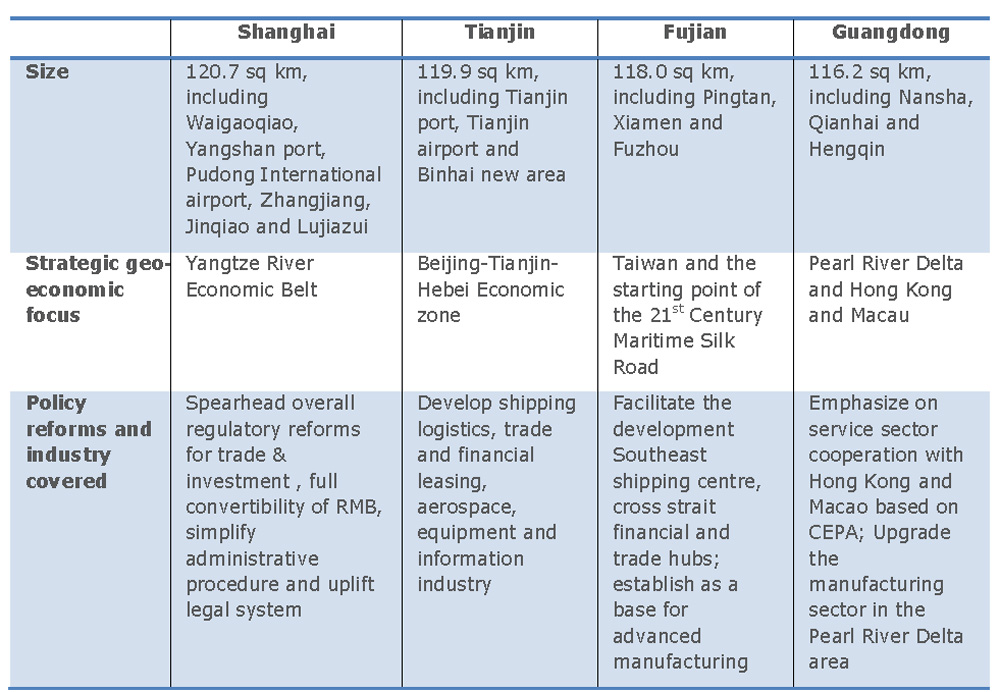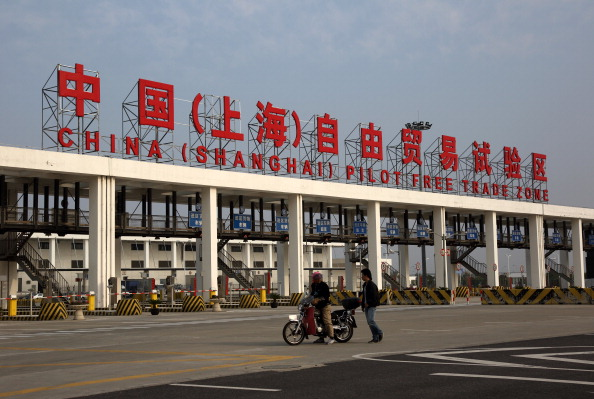-
In a further positiive development for market liberalisation in China, the country's State Council has formally unveiled its plans to launch three more Free Trade Zones (FTZs) within the Asian giant's borders.
The new zones, located in Tianjin, Fujian and Guangdong, come alongside an expansion of the existing zone in Shanghai. ANZ Research sees this as another sign China is determined to increase its economic openness, transform its industrial structure and allow the market to play a greater role in its economy.
"China is determined to increase its economic openness, transform its industrial structure and allow the market to play a greater role in its economy."
Li-Gang Liu and Raymond Young, Chief Economist, Greater China & Senior EconomistCHINA'S FOUR FREE TRADE ZONES
{CF_IMAGE}
The initiative is highly strategic for the Chinese government and one framed from a global perspective. The announcement of the move contained reference to the 'Belt and Road' initiative mentioned in the first Shanghai-driven initiative in 2013, suggesting the plan has now escalated to a national level.
The plans are carefully crafted with an aim to promote cross-border and international cooperation, transform the industrial structure of China's coastal regions and allow foreign participants and the market to influence the direction of the economy.
OPEN-BORDER POLICY
The FTZ initiative appears to emphasise five aspects of economic liberalisation. They are:
- Spur innovation in the institutional framework covering investment management systems, trade surveillance, financial systems and pre-post management procedure.
- Serve China's national development strategy. Some of the zones are designed for regional economic cooperation with other economies, while others will focus on a particular aspect of reforms specified by the China Communist Party.
- A hub-and-spoke design covering neighbouring geo-economic zones. The Guangdong pilot is explicitly called an initiative to tap into the global advantage of Hong Kong's financial sector. The Tianjin pilot is noted as bringing synergy to the China-Mongolia-Russia economic linkage.
- Risk management. China's State Council has also launched a provisional regulation for an FTZ Foreign Investment National Security Review, governing many aspects including macro-prudential controls, tax evasion and border control.
- Reducing the blacklist. All FTZs will observe a single 'negative list' in which some industries and business activities will still require conventional approval. The number of listed items though has been reduced from 190 to 122, easing foreign investment significantly.
SHANGHAI FOCUS
{CF_IMAGE}
Since Shanghai is China's financial centre and there is little room for local FTZs to deviate from the national regulatory framework that governs banking, securities and insurance, Shanghai's FTZ will continue to lead the financial liberalisation and define the maximum level of capital account openness.
The new FTZs will help expand the scale of RMB internationalisation and cross-border transactions. The increasing cross-border flows will promote the convergence of onshore and the offshore RMB markets.
China's policy reforms often take a gradual approach, testing new ideas or initiatives via a pilot program in selected sites.
While this approach may work well for traditional industries such as trade and manufacturing, its application to financial services has not been straightforward because capital flows are not easily tractable.
Unlike other reforms which cover physical goods and people's flows, capital-account liberalisation requires careful control. We reiterate our view that policy sequencing is required for capital-account liberalisation in order to contain and mitigate financial risks.
To achieve this, policymakers need to hasten domestic financial-sector reform to support the FTZ initiative.
Data source: Source: China’s State Council, ANZ Research.
The views and opinions expressed in this communication are those of the author and may not necessarily state or reflect those of ANZ.
-
-
EDITOR'S PICKS
-
China's financial system is radically different to when Huang Xiaoguang returned to Shanghai with an MBA won through an UN-sponsored scholarship in Europe in 1988. The native-born Shanghainese Huang tells not to discount the capacity for China to innovate but not to expect any reform to come without thorough testing of the waters.
17 March 2015 -
China's paramount policy setting confab, the National People's Congress, is in progress and has already delivered some key insights into the shape of the economy. The NPC will carry on into next week and official communications will be closely monitored by the market.
12 March 2015 -
Energy efficiency should be China's answer to both its energy supply and environmental problems. China should promote renewable and clean energy sources, upgrade its coal power production and encourage a low-carbon power system by capping coal's absolute contribution to the energy mix. But any decision to cap coal consumptionis likely to face many obstacles and challenges.
7 April 2015


